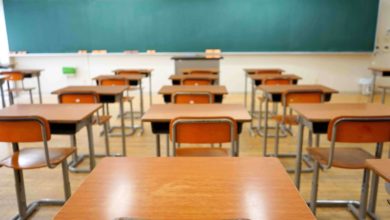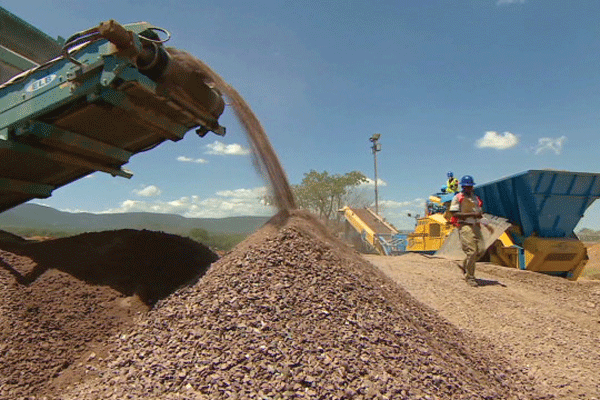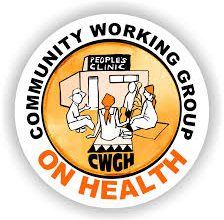
The source of the coronavirus infections recorded in Bulawayo could be people who travelled from the United Kingdom, health officials in the country have suggested.
The UK is one of the worst COVID-19 affected countries in Europe with the latest statistics (April 14) showing 88 621 cases and 11 329 deaths.
Due to the contagious nature of COVID-19, Bulawayo has recorded five positive cases, including one death.
Of these five cases, three had links to persons from the UK while the other two contracted the virus locally after coming into contact with those already infected.
Nationally, Zimbabwe has 17 confirmed cases and three deaths.
Bulawayo’s first case and the country’s Case 11 was 79-year-old man, Ian Hyslop, who died on April 4.
Hyslop came into contact with a visitor from the UK.
The deceased later transmitted the virus to Case 16.
The second case in Bulawayo – Case 14 – a 53-year-old man who did not come into contact with the late Hysop but was also linked to the same visitor from the UK.
This means he contracted coronavirus from the same UK visitor who infected Case 11.
According to the Ministry of Health and Child Care, the man – Case 14 – is “self-isolating at home stable and with mild disease.”
However, the health ministry noted the visitor from the UK tested negative for COVID-19 using the Polymerase Chain Reaction (PCR) machine but a second test from a rapid antibody test came out positive.
“At some point, prior to the test, the UK visitor was infected with COVID-19,” said the ministry which concluded, “Without any other confirmed case to explain the source of infection for Case 11 and Case 14 was the visitor from the UK, as the most probable epidemiological link to both.”
The UK visitor has since recovered from COVID-19.
Mpilo Central Hospital Clinical Director and Acting CEO Dr Solwayo Ngwenya explained the reason for the UK’s negative status was that he had “once fought and defeated COVID-19.”
Dr Ngwenya noted the UK visitor tested “positive on blood tests but currently since there is no active virus in his throat swab, the PCR showed negative results. People infected before can go on shedding the virus for some time.”
This means the UK visitor tested negative for the virus under the PCR machine but positive for antibodies through rapid test showing he recovered.
He added one could be positive for COVID-19, shed the virus off and become negative, although “it takes weeks from positive to negative.”
Meanwhile, the UK link becomes more evident in the three new Bulawayo cases.
In its statement, the health ministry said Case 15, a 34-year-old female resident from Bulawayo is self-isolating at home.
But City of Bulawayo’s Assistant Director of Health Services, Dr Khulamuzi Nyathi noted investigations revealed that she had come into contact with people who had come into the country from the UK.
“She is a health worker and we stopped her from going to work. Case 15 resides in the eastern suburbs where she rents and interacted with her landlords who came from the UK. We don’t know which flight they used to or how they came to Bulawayo, these are gaps that we are looking at,” he said.
Director of Health Services, Dr Edwin Sibanda, said Case 15 “was on leave at the time she contracted the virus.”
“Rapid response teams are now establishing who she may have visited or contacted,” he said.
Dr Sibanda said Case 16 is also a 52 year old health worker who tended to the late Hysop (who had contact with a UK visitor) without any personal protective equipment.
“She consulted with the local rapid response team presenting a 3 day history of headache. She is stable, with mild diseases and is self-isolating at home.”
He noted that Case 17 is a 79-year-old female resident of Bulawayo who stays at Qalisa Retirement Village and likely contracted the virus from Case 11.
“Although Case 17 and Case 11 stayed in same compound, Case 17 denies she had contact with the deceased. Since they stayed in one gated area, we think perhaps they shared objects, or visited the same resident doctor, either both had one worker who assisted them or shared something. Our teams is investigating the link,” he said.
Dr Sibanda said the rapid response teams were waiting for testing kits to test the other residents at Qalisa who numbered 125.
“From the 125, we tested Case 11, Case 16 who had direct link and Case 17, so that is three of 125. We now need 122 testing kits dedicated to the residents of Qalisa. When the kits become available we will do the testing,” he said.
“The rapid testing kits are not ideal as they will show a positive result after seven days…after the infection remains in the body. For now, we need to check samples using the PCR machine where results are best measured,” he noted.
Dr Sibanda said the testing kits had to be delivered by the health ministry so Mpilo could process them.
“We cannot acquire the testing kits because it’s not in our budget since this is a national programme, resources have to come out of the national purse.”
The city official lamented that Bulawayo as a province did not have facilities for isolation, where those who tested positive could be housed.
He explained that self-isolation meant one has to have their own room for that duration and don’t share utensils.
“We hope people understand and appreciate the importance of self-isolation. We have not established an isolation centre and our dream is to identify then we can enforce self-isolation. Ekusileni (Medical Centre) is a treatment hospital for those who show symptoms and medical care.”




